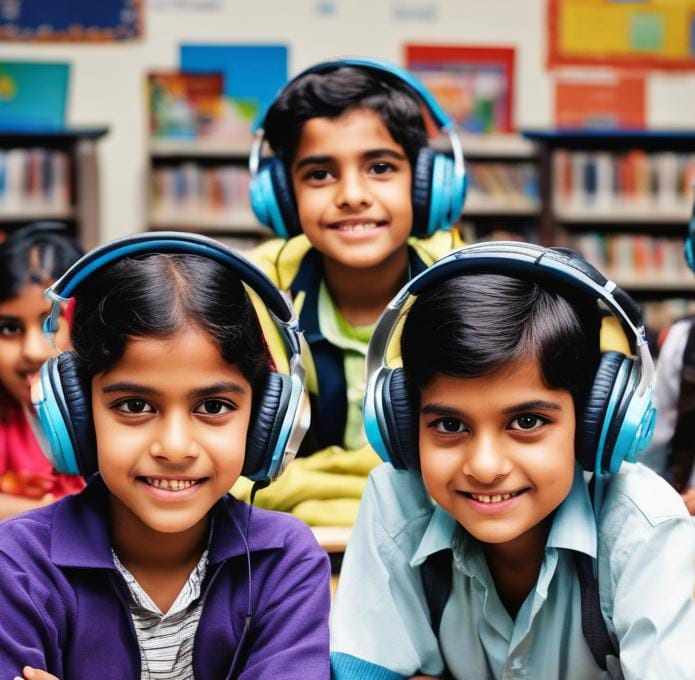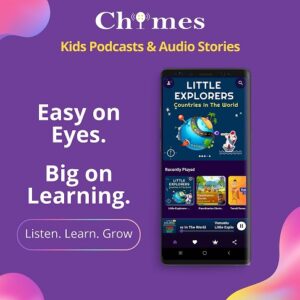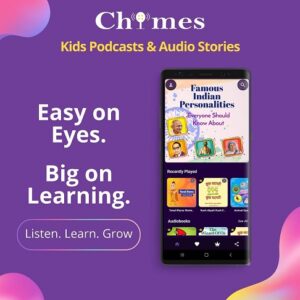Podcasts in Education: A New Way to Learn
In today’s rapidly evolving educational landscape, teachers are constantly seeking innovative ways to engage their students and enhance their learning experiences. Podcasts in education have recently gained prominence as teaching aids. Podcasts, those audio recordings available on the internet, are not just for entertainment; they can also be powerful educational tools. In this article, we will explore how teachers can use podcasts to improve results and how to implement them effectively in the classroom.
Why Use Podcasts in Education?
Podcasts in education and learning can offer a unique blend of storytelling, audio, and technology that can captivate students’ attention in new ways that greatly complement the traditional teaching methods. Here are some key reasons why educators are increasingly turning to podcasts as a great additional tool in the classroom:
Engagement: Podcasts are an exciting and interactive way to present information. They can make even the most challenging topics more accessible and interesting.
Accessibility: Podcasts can be accessed anytime and anywhere, making them a versatile learning tool for both in-class and remote learning situations.
Diversity of Content: There’s a podcast for almost every subject or topic. This vast array of content allows teachers to find podcasts that align with their curriculum and cater to students’ interests.
Improved Listening Skills: Podcasts can help students improve their listening skills, a crucial aspect of effective communication and comprehension.
Critical Thinking: Many podcasts encourage critical thinking by presenting complex issues, diverse perspectives, and thought-provoking discussions.
How Podcasts Can Improve Student Results?
Now, let’s delve into how podcasts in education can positively impact student learning outcomes:
Enhanced Engagement: One of the most significant benefits of using podcasts is the ability to capture students’ attention. Instead of passively listening to a lecture, students become active participants in the learning process. When students are engaged, they are more likely to retain information and perform better on assessments.
Improved Comprehension: Podcasts in education, often feature experts or enthusiasts who have a deep understanding of the subject matter. This can help students gain a clearer and more comprehensive understanding of complex topics.
Flexible Learning: Podcasts can be assigned as homework, allowing students to learn at their own pace. This flexibility can be especially helpful for students who need extra time to digest information or for those who want to delve deeper into a topic.
Diverse Perspectives: Podcasts frequently feature diverse voices and viewpoints. Exposure to different perspectives can foster critical thinking and broaden students’ horizons, encouraging them to think beyond the classroom.
Enhanced Communication Skills: Listening to well-articulated ideas and discussions in podcasts can improve students’ communication skills. They can learn how to express their thoughts more clearly and persuasively.
Increased Motivation: Podcasts often cover real-world issues and topics that students can relate to. This relevance can boost their motivation to learn and apply their knowledge.
How to Implement Podcasts in the Classroom?
Now that we understand the benefits of using podcasts in education, let’s explore how teachers can effectively integrate them into their teaching strategies:
Choose Appropriate Podcasts: Select podcasts that align with your curriculum and the learning objectives of your lessons. Consider factors such as content relevance, age-appropriateness, and length.
Set Clear Learning Goals: Clearly communicate the learning goals associated with the podcast assignment. Explain what students should pay attention to and what they are expected to gain from listening.
Provide Guidance: Before assigning a podcast, give students guidance on how to listen critically. Encourage them to take notes, ask questions, and make connections to the course material.
Create Discussion Opportunities: After students have listened to a podcast, facilitate discussions or group activities to encourage them to reflect on what they’ve learned. This can help reinforce their understanding of the content.
Assessment: Incorporate podcast-related assignments or assessments into your grading system. This can include quizzes, essays, or presentations that require students to demonstrate their understanding of the podcast material.
Encourage Feedback: Encourage students to provide feedback on the podcasts they listen to. This can help you gauge their engagement and identify areas for improvement.
Provide Resources: Offer resources, such as transcripts or supplementary readings, for students who may need additional support or prefer a different learning style.
Stay Current: Podcasts are continually being created, so stay current with new content that may be relevant to your course. Consider subscribing to education-focused podcast directories or communities to discover new resources.
Explore Chimes Podcasts on Different Subjects
Below are listed some of the most popular podcasts from Chimes, which have been listeners favorite and being actively used by schools and teachers to aid education. Whatever you may be looking for, chances are we have a great podcast to fulfill that need.
History: “Famous Indian Personalities” and “Indian Festivals At a Glance”.
Science: “Animal Gyan”, “Inventopedia: Stories of Inventors and Their Inventions”, and “Kabhi Socha Hai? Science Podcast For Kids”.
Literature: “Chimes Bookshelf: Book Club For Kids” and “Let’s Read A Poem: Best Poems For Kids”.
Geography: “Little Explorers: World Countries”.
Podcasts in education offer an exciting and effective way to enhance teaching and improve student results. They engage students, promote critical thinking, and provide access to a diverse range of content. By carefully selecting and integrating podcasts into the curriculum, teachers can harness the power of this versatile medium to create more dynamic and effective learning experiences for their students. So, whether you’re a teacher looking to revamp your teaching methods or a student eager to explore new ways of learning, give podcasts a try – you might just be surprised by the positive impact they can have on your educational journey.






